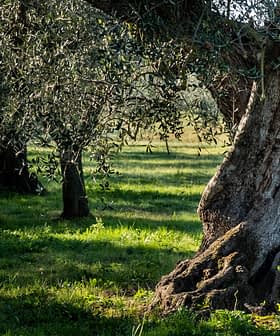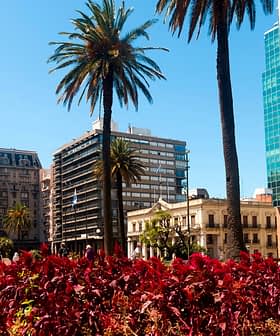A new study found that certain polyphenols in extra virgin olive oil enhanced the healing actions of fibroblasts, cells essential for forming connective tissues.
Fibroblasts play a crucial role in repairing damaged skin from lesions or cuts. The research, published in Nutrients, paves the way for the future use of polyphenol-based applications to heal wounded skin.
We found that when exposed to the phenolic compounds, the fibroblasts would migrate, which means that they would move to close the gap caused by the wound, benefiting their healing action.
“Fibroblasts are the main cells in the skin and are involved in its regeneration,” Olga García-Martínez, co-author of the study and researcher at the University of Granada’s health science department, told Olive Oil Times. “They are essential in repairing damaged skin.”
Lucía Melguizo-Rodríguez, another co-author and university researcher, added that fibroblasts are crucial in extra-cellular matrix reconstruction.
See Also:Health News“They release compounds which keep all of the skin components together, they are the net keeping it all together, and that is why their action is so relevant,” she told Olive Oil Times.
The scientists focused on how fibroblast behavior would be impacted by applying hydroxytyrosol, tyrosol and oleocanthal, extra virgin olive oil’s most prevalent polyphenols.
“Those three phenols were chosen because previous research demonstrated their interesting behavior when applied to different tissue cells, such as the osteoblasts, bone cells,” García-Martínez said. “We singled those three out as there were higher chances that they could stimulate soft tissue cells such as fibroblasts.”
The research highlighted that those phenolic compounds would stimulate fibroblast growth when applied.
“That is a very relevant result, as when the skin is wounded, stimulating the development of a higher number of fibroblasts would result in better healing,” Melguizo-Rodríguez said.
However, that was not the only result they observed, as polyphenols also affected fibroblasts’ behavior in vitro conditions.
“We found that when exposed to the phenolic compounds, the fibroblasts would migrate, which means that they would move to close the gap caused by the wound, benefiting their healing action,” Melguizo-Rodríguez.
On top of that, the growth of the fibroblasts observed by the researchers in the laboratory environment did not show any cellular alteration.
“When cellular growth stimulation therapies are applied, one potential negative outcome is the uneven growth of the cells themselves, or cell mutations which might be dangerous,” the researchers explained.
That is why the scientists developed an experiment highlighting how the cellular growth stimulated by polyphenols is safe.
“One of the experiments focused on that and showed that the cells do not have any kind of DNA aneuploidy, which means that they do not show any sign that those cells could be mutating,” Melguizo-Rodríguez said.
The scientists highlighted how their research is part of a growing body of studies focusing on polyphenols’ impact on human tissues and cell profiles. Previous research found that other phenols in extra virgin olive oil also stimulated fibroblast proliferation and migration.
See Also:The Facts About Olive Oil and Skin CareOther studies have also hinted at phenols’ role in regulating the wound healing process and their potential protective action against age-related changes in fibroblast.
However, the quest to use extra virgin olive oil as an efficient tool to heal wounds will require further studies.
“At the moment, we are investigating how the healing properties that we detect might be successfully applied where needed,” García-Martínez. “Examples of future solutions could be hydrogels or creams.”
“We now understand what happens when you apply phenols to fibroblasts directly within a lab environment,” Melguizo-Rodríguez added. “In real life, such as with a wound on the human skin, conditions are quite different.”
Directly applying phenols to fibroblasts might be challenging, as using extra virgin olive oil on the skin would only reach the very surface of the skin itself.
“There are also other cell populations [on the skin surface], so you cannot just apply extra virgin olive oil on your wounds; you need a [vessel] to transport the phenols where needed,” Melguizo-Rodríguez said.
“The next step is to design a mechanism in the laboratory with which we can effectively introduce the phenols,” García-Martínez added. “Once that is accomplished, we will be a step closer to crafting real-life applications derived from extra virgin olive oil,”
The researchers emphasized that estimating how long it will take to get to that step is impossible, as it also depends on research financing.
Still, they explained that once that goal is reached, assessing the outcome of the new remedy’s application will be necessary.
“It is important to define and identify potential adverse effects even if we do not expect those to happen,” Melguizo-Rodríguez said.
Developing a remedy that offers new options to doctors, nurses and patients addressing skin wounds could also be sustainably sourced.
“During olive processing, wastewater rich in polyphenols is commonly discarded after olive oil production,” Melguizo-Rodríguez concluded. “It is interesting to isolate the compounds we need within a raw material that is not currently interesting for the market.”









